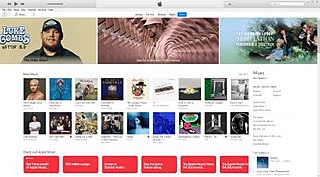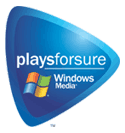History of PassAlong Networks
Founded in 2002 in Nashville, Tennessee, the company moved their headquarters to the Factory at Franklin, south of Nashville. The founders included former Microsoft executive Dave Jaworski, digital media producer Brad Edmonson, former EMI executive Scott Hughes, Scott Lewis, Robin Pou, and independent music producer Jozef Nuyens, who also owns The Castle Studio in Franklin, Tennessee.
In September 2004, PassAlong launched its first digital music download store in conjunction with eBay. The store became the largest store on eBay. The eBay relationship is longer in place however. Then the company launched over two hundred stores, including Procter & Gamble's Home Made Simple store and the f.y.e.- for your entertainment, digital download store. PassAlong became Microsoft PlaysForSure certified in December 2004. In 2006 the company released a non-DRM solution that helps guard artist content without restricting interoperability on the consumer side. In that year PassAlong joined DDEX to develop metadata standards across the industry. Members include Microsoft and Apple Computer.
The company stopped operations on May 5, 2009. [1] The closing was evidently a result of losing investors who were forced to pull out by the effects of the waning economy. [2] At the time of closing, new initiatives included variable-pricing programs and in-car music downloads, digital video libraries, and social networks.
Windows Media Audio (WMA) is a series of audio codecs and their corresponding audio coding formats developed by Microsoft. It is a proprietary technology that forms part of the Windows Media framework. WMA consists of four distinct codecs. The original WMA codec, known simply as WMA, was conceived as a competitor to the popular MP3 and RealAudio codecs. WMA Pro, a newer and more advanced codec, supports multichannel and high-resolution audio. A lossless codec, WMA Lossless, compresses audio data without loss of audio fidelity. WMA Voice, targeted at voice content, applies compression using a range of low bit rates. Microsoft has also developed a digital container format called Advanced Systems Format to store audio encoded by WMA.
In economics, vendor lock-in, also known as proprietary lock-in or customer lock-in, makes a customer dependent on a vendor for products, unable to use another vendor without substantial switching costs.

iTunes Store is a digital marketplace selling songs, albums, music videos, ringtones and alert tones. It was launched by Apple Inc. on April 28, 2003 for macOS, and on October 16, 2003 for Microsoft Windows. It launched as a mobile application with iOS on June 29, 2007.
FairPlay is a family of digital rights management (DRM) technologies developed by Apple Inc. for protecting videos, books and apps and historically for music.

eMusic is an online music and audiobook store that operates by subscription. In exchange for a monthly subscription eMusic users can download a fixed number of MP3 tracks per month. eMusic was established in 1998, is headquartered in New York City with an office in London, and is owned by TriPlay.
Digital Living Network Alliance (DLNA) is a set of interoperability standards for sharing home digital media among multimedia devices. It allows users to share or stream stored media files to various certified devices on the same network like PCs, smartphones, TV sets, game consoles, stereo systems, and NASs. DLNA incorporates several existing public standards, including Universal Plug and Play (UPnP) for media management and device discovery and control, wired and wireless networking standards, and widely used digital media formats. Many routers and network attached storage (NAS) devices have built-in DLNA support, as well as software applications like Windows Media Player.

Copy Control was the generic name of a copy prevention system, used from 2001 until 2006 on several digital audio disc releases by EMI Group and Sony BMG Music Entertainment in several regions. It should not be confused with the CopyControl computer software copy protection system introduced by Microcosm Ltd in 1989.

Microsoft PlaysForSure was a certification given by Microsoft to portable devices and content services that had been tested against several hundred compatibility and performance requirements. These requirements include codec support, digital rights management support, UI responsiveness, device performance, compatibility with Windows Media Player, synchronization performance, and so on. PlaysForSure certification was available for portable media players, network-attached digital media receivers, and media-enabled mobile phones. The PlaysForSure logo was applied to device packaging as well as to online music stores and online video stores.
Digital distribution, also referred to as content delivery, online distribution, or electronic software distribution, among others, is the delivery or distribution of digital media content such as audio, video, e-books, video games, and other software.

MSN Music was a part of MSN's web services. It delivered music news, music videos, spotlights on new music, artist information, and live performances of artists. The website also served as a digital music store from 2004 to 2008.

Bleep is an online independent record shop that mainly showcases music from independent artists and labels. Created by Warp Records and launched in January 2004, Bleep offers single tracks and whole albums as both digital and physical purchases, the latter including vinyl records, compact cassettes and CDs. All music they sell is free of digital rights management (DRM) technologies. They also sell DVDs, clothing, and other merchandise from a variety of labels and designers.
Yahoo! Music Jukebox, formerly known as Yahoo! Music Engine, was a freeware music player released by Yahoo! in 2005 to compete with iTunes and Rhapsody in the digital music market. Developed side-by-side with MusicMatch Jukebox, another music player acquired by Yahoo! in 2004, it was designed to be the main client for Yahoo's array of music services, which were centered around Yahoo! Music Unlimited, a paid music streaming service and digital music store; in addition to being a music management software. In early 2008 Yahoo! sold off its music assets, including Yahoo! Music Jukebox to RealNetworks' Rhapsody and replaced it with a web-based music player.
The open music model is an economic and technological framework for the recording industry based on research conducted at the Massachusetts Institute of Technology. It predicts that the playback of prerecorded music will be regarded as a service rather than as individually sold products, and that the only system for the digital distribution of music that will be viable against piracy is a subscription-based system supporting file sharing and free of digital rights management. The research also indicated that US$9 per month for unlimited use would be the market clearing price at that time, but recommended $5 per month as the long-term optimal price.
SpiralFrog was a very early music streaming service based in New York City that launched in the United States and Canada on September 17, 2007. SpiralFrog offered free and legal music downloads, all supported by advertising, and was the largest site of its kind in North America. On March 19, 2009, SpiralFrog terminated operations due to loan recalls. While SpiralFrog was not successful in the end, it nonetheless helped shaped the digital music industry shift from the purchase to streaming models, and its ultimate revenue recovery
Amazon Music is a music streaming platform and digital music store operated by Amazon. As of January 2020, the service had 55 million subscribers.
inMusic was a Canadian music news portal and an online music store. The music store had over 2 million tracks in English and French from various genres. Samples of 30 seconds for each song were offered at no charge. Purchases and downloads could be transferred to a CD or compatible digital music device.
Digital rights management (DRM) is the management of legal access to digital content. Various tools or technological protection measures (TPM), such as access control technologies, can restrict the use of proprietary hardware and copyrighted works. DRM technologies govern the use, modification and distribution of copyrighted works and of systems that enforce these policies within devices. DRM technologies include licensing agreements and encryption.
A digital copy is a commercially distributed computer file containing a media product such as a film or music album. The term contrasts this computer file with the physical copy with which the digital copy is usually offered as part of a bundle. It allows the disc's purchaser to acquire a single copy of the film on a digital device such as a personal computer, smartphone, tablet computer, or digital media player, and view it on those devices without requiring access to the physical media. "Digital copy" is also commonly referred to as "Digital HD".
A music streaming service is a type of online streaming media service that focuses primarily on music, and sometimes other forms of digital audio content such as podcasts. These services are usually subscription-based services allowing users to stream digital copyright restricted songs on-demand from a centralized library provided by the service. Some services may offer free tiers with limitations, such as advertising and limits on use. They typically incorporate a recommender system to help users discover other songs they may enjoy based on their listening history and other factors, as well as the ability to create and share public playlists with other users. It may also include customized radio or social media platforms.
The Coral Consortium was founded in 2004 by Hewlett-Packard Corporation, InterTrust Technologies, Koninklijke Philips Electronics N.V., Matsushita Electric Industrial Co., Ltd. (Panasonic), Samsung Electronics Co., Ltd, Sony Corporation and Twentieth Century Fox Film Corp. The Coral Consortium has been dissolved in December 2012. Its last specification was available until April 1, 2013.






